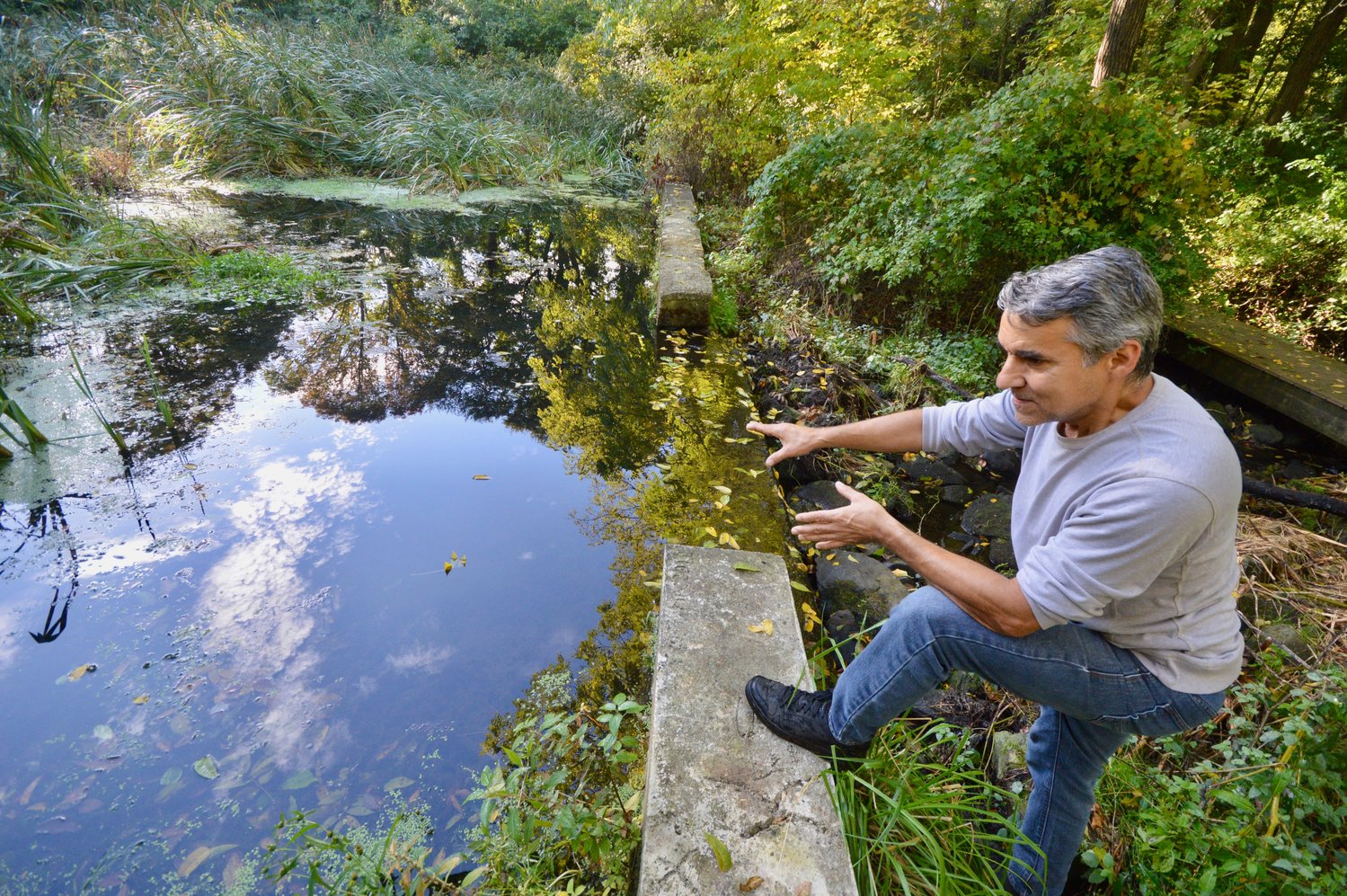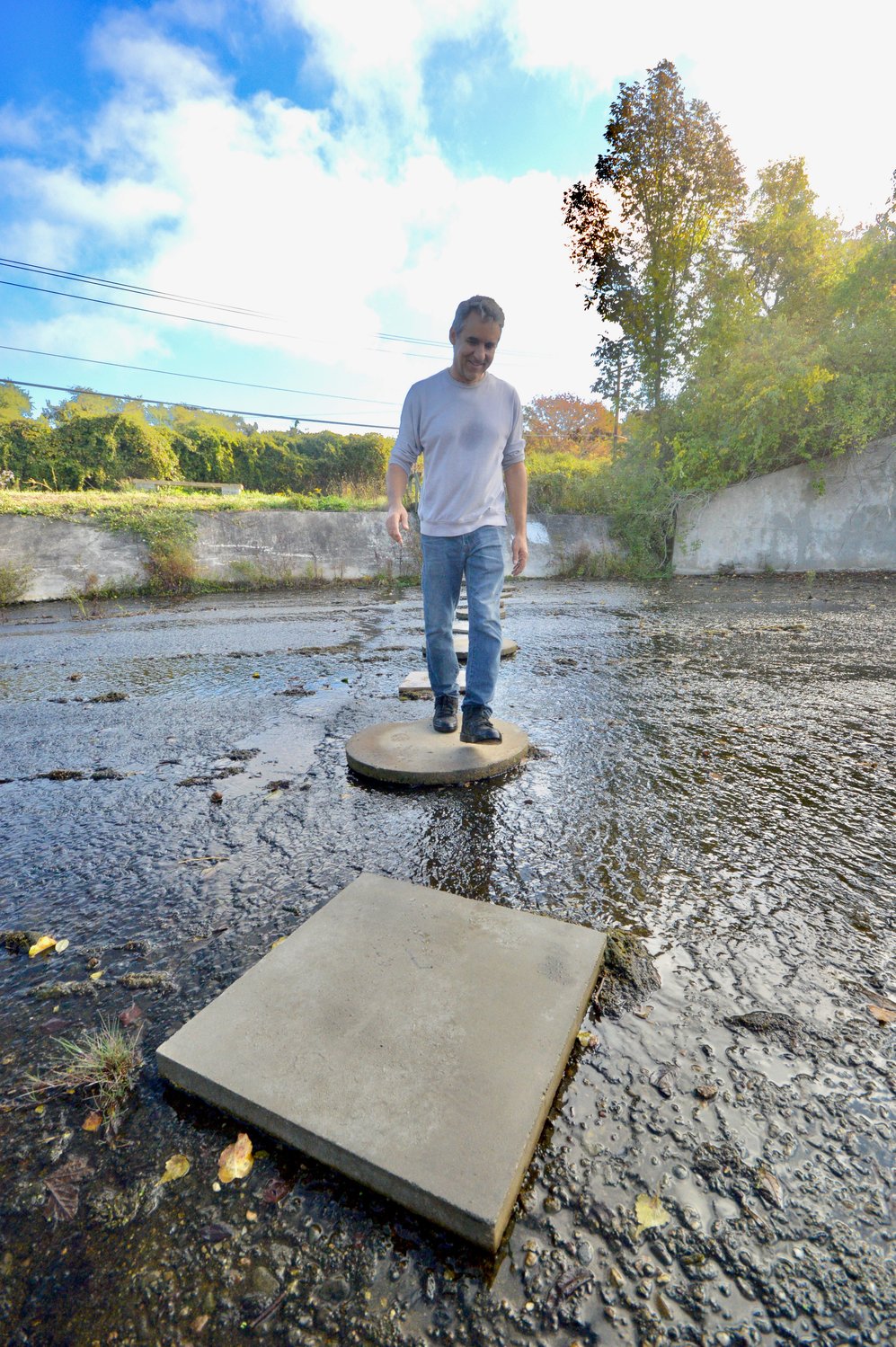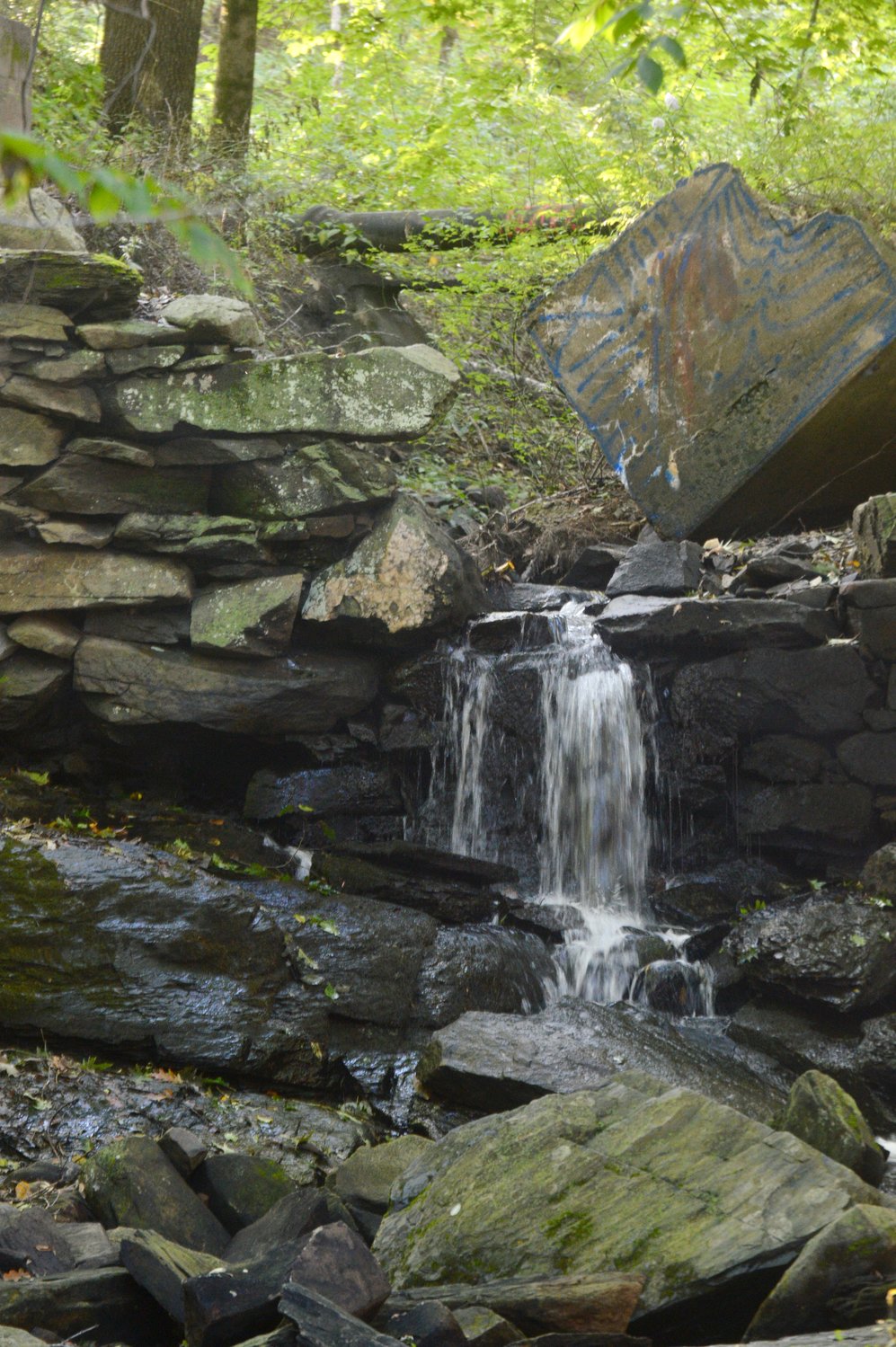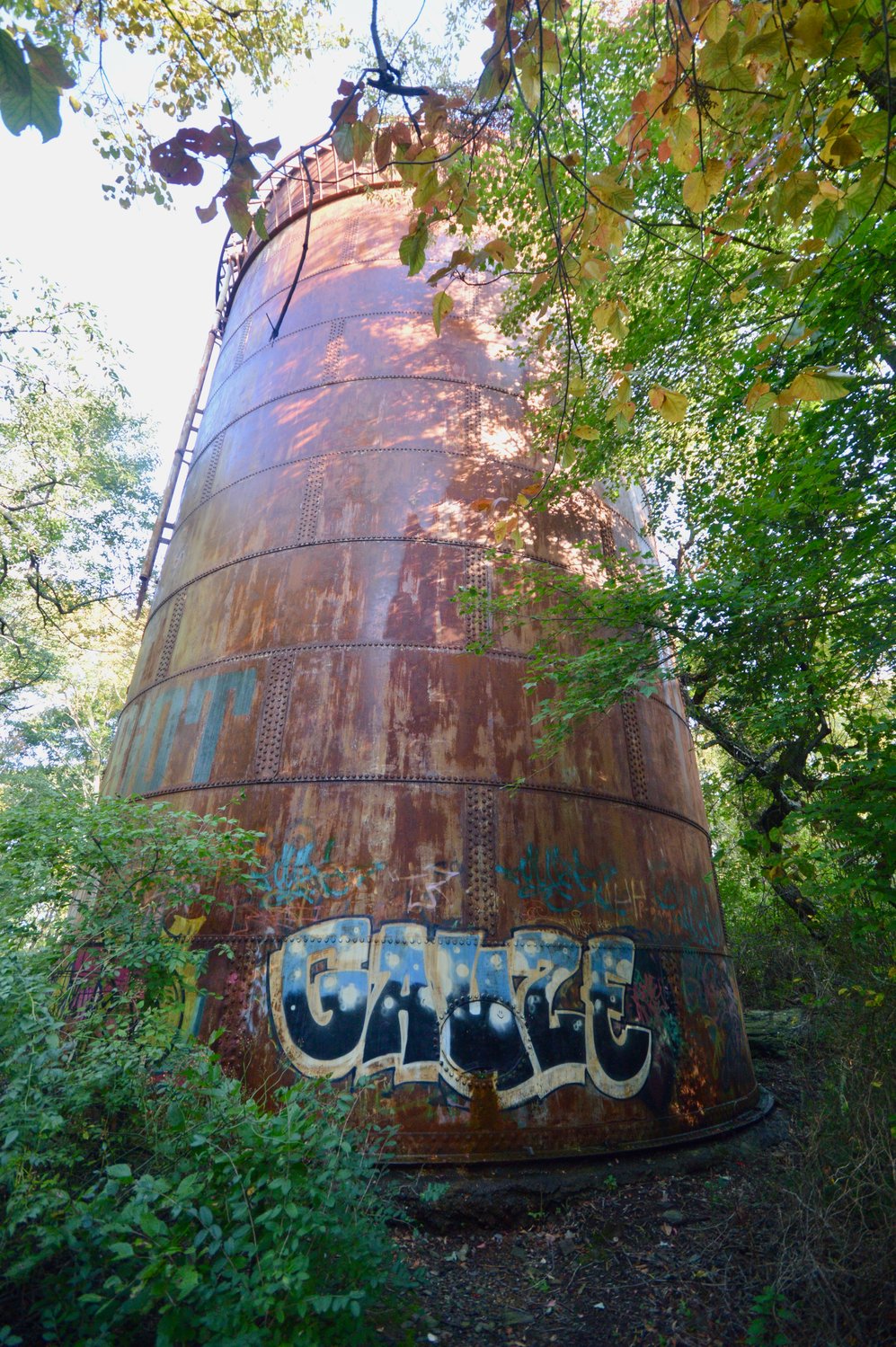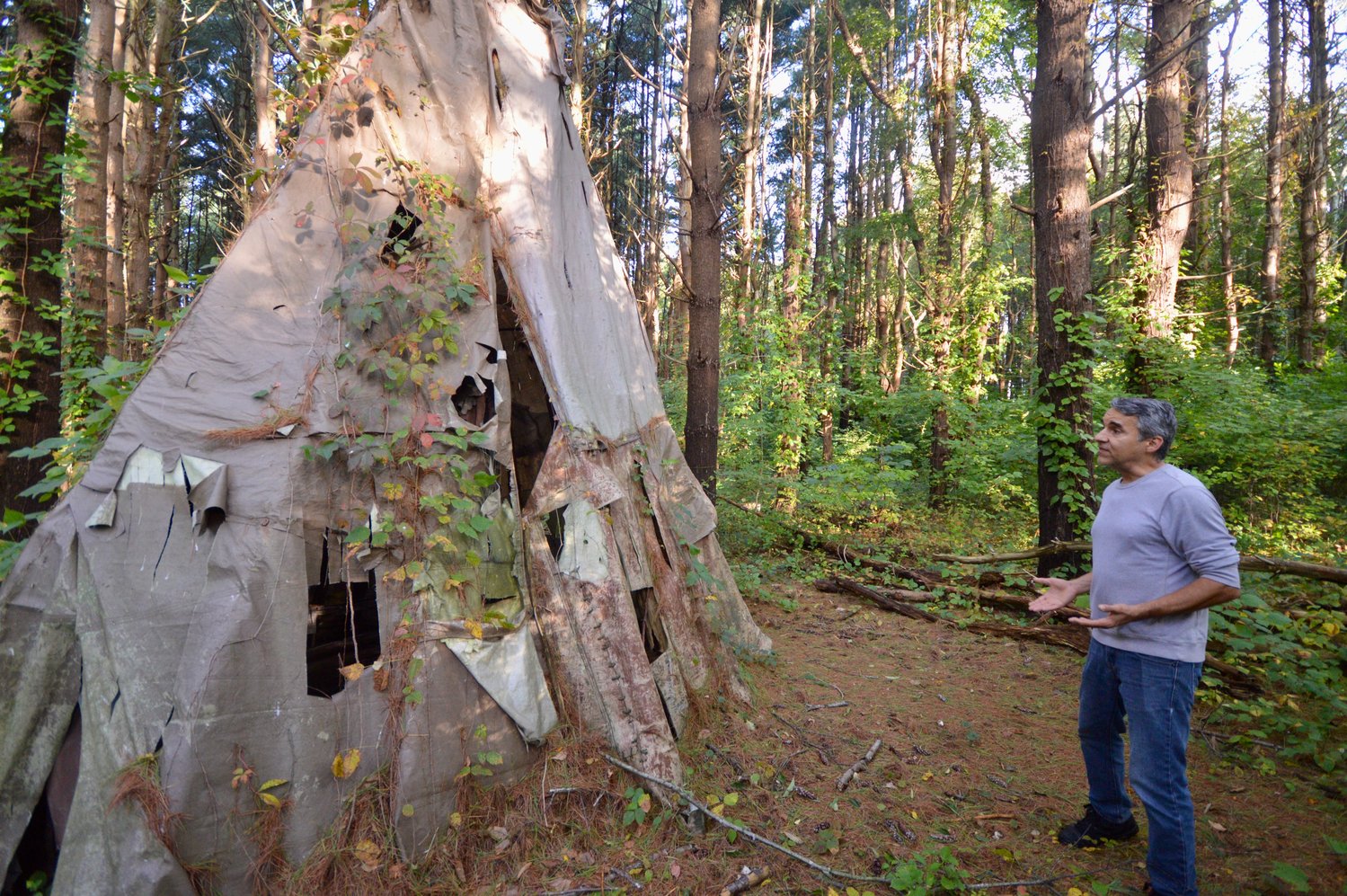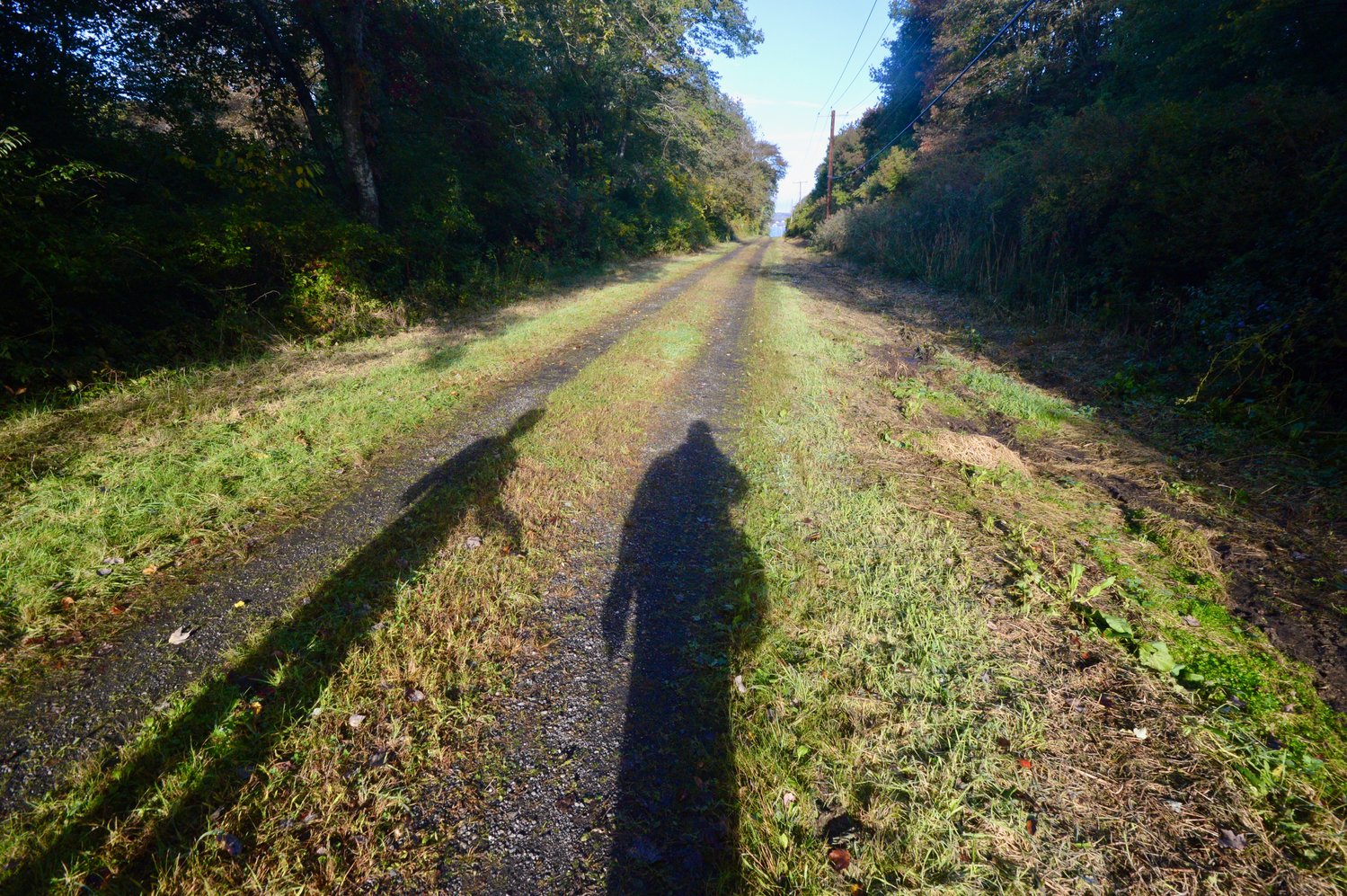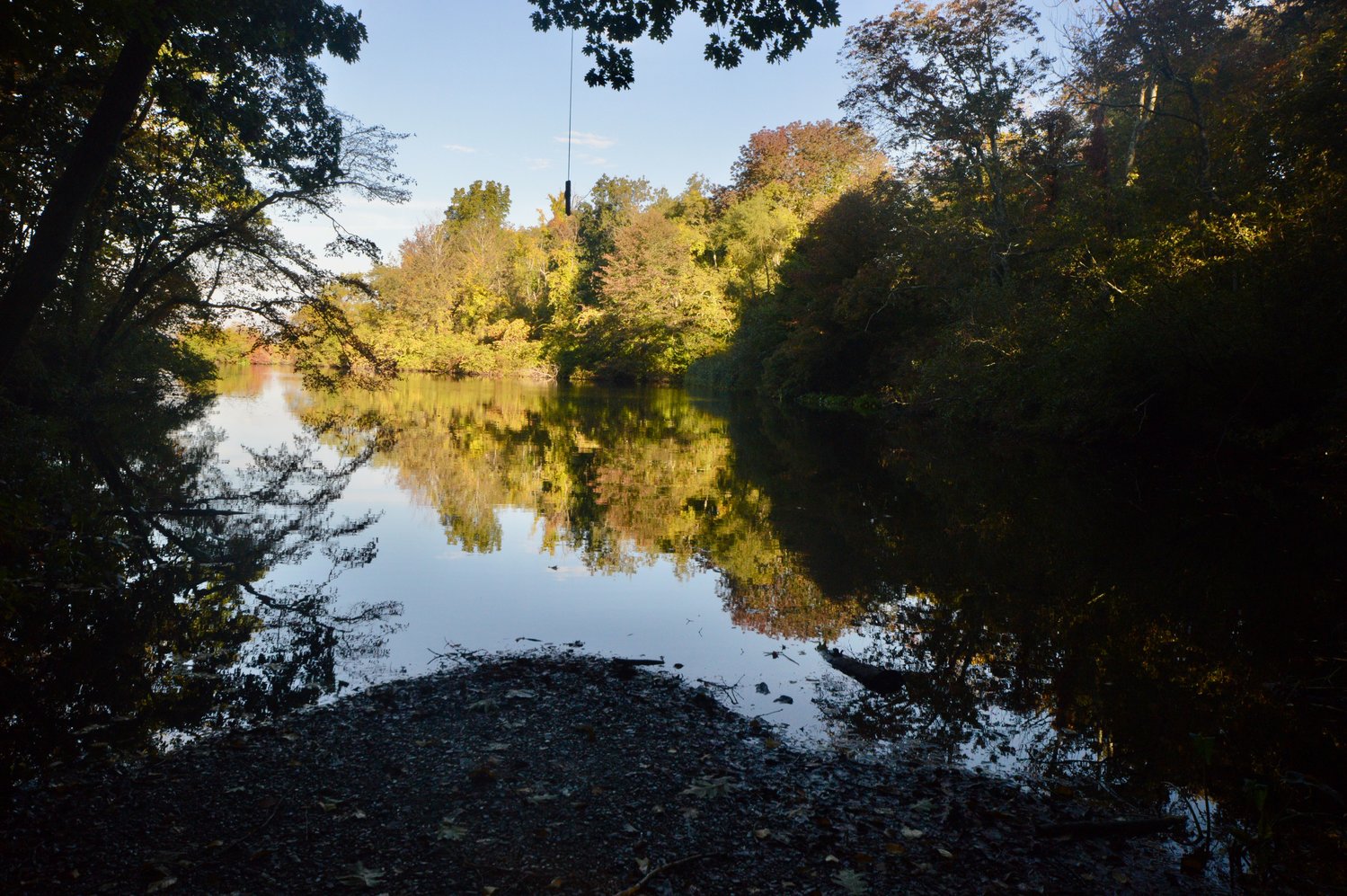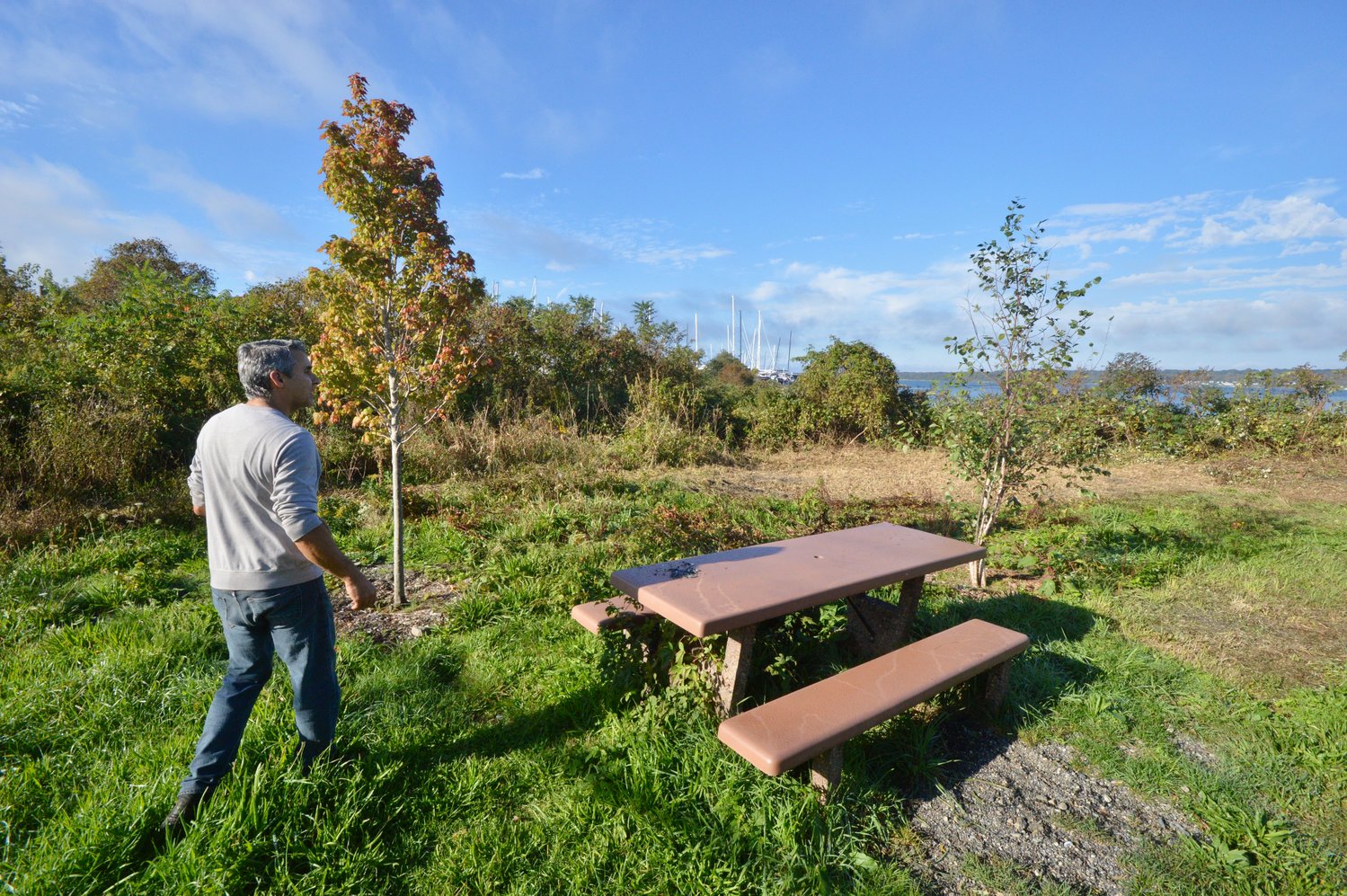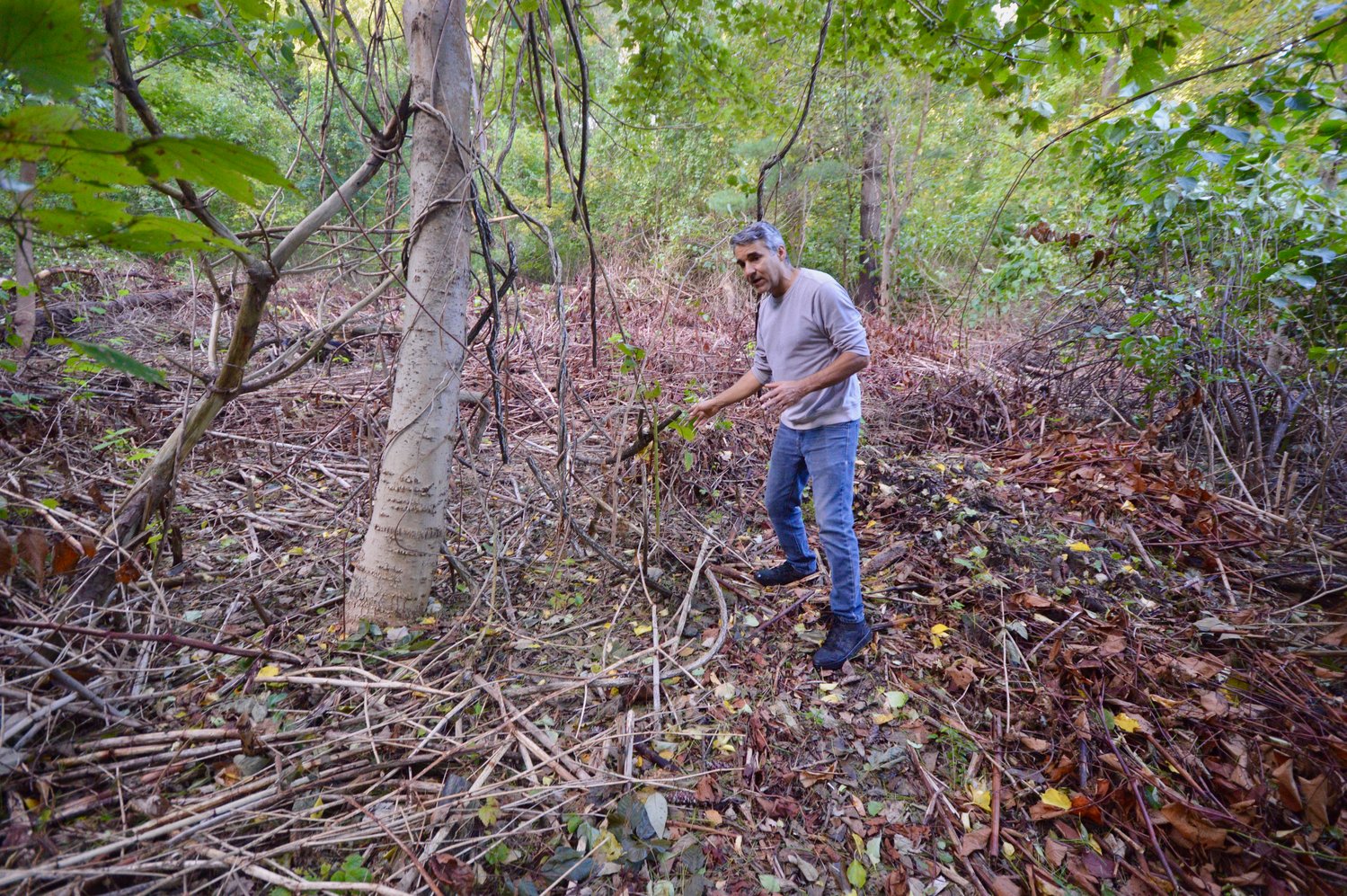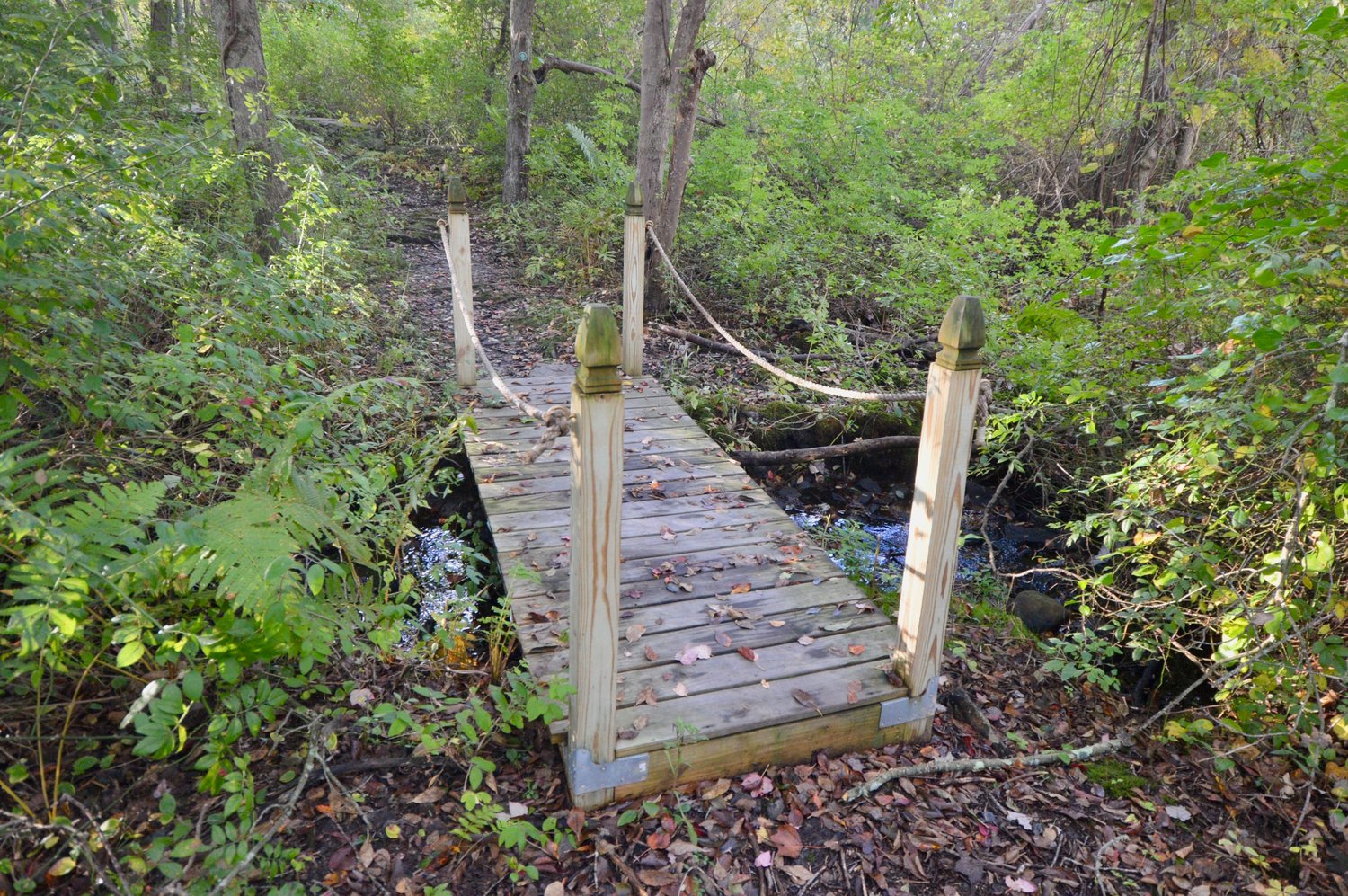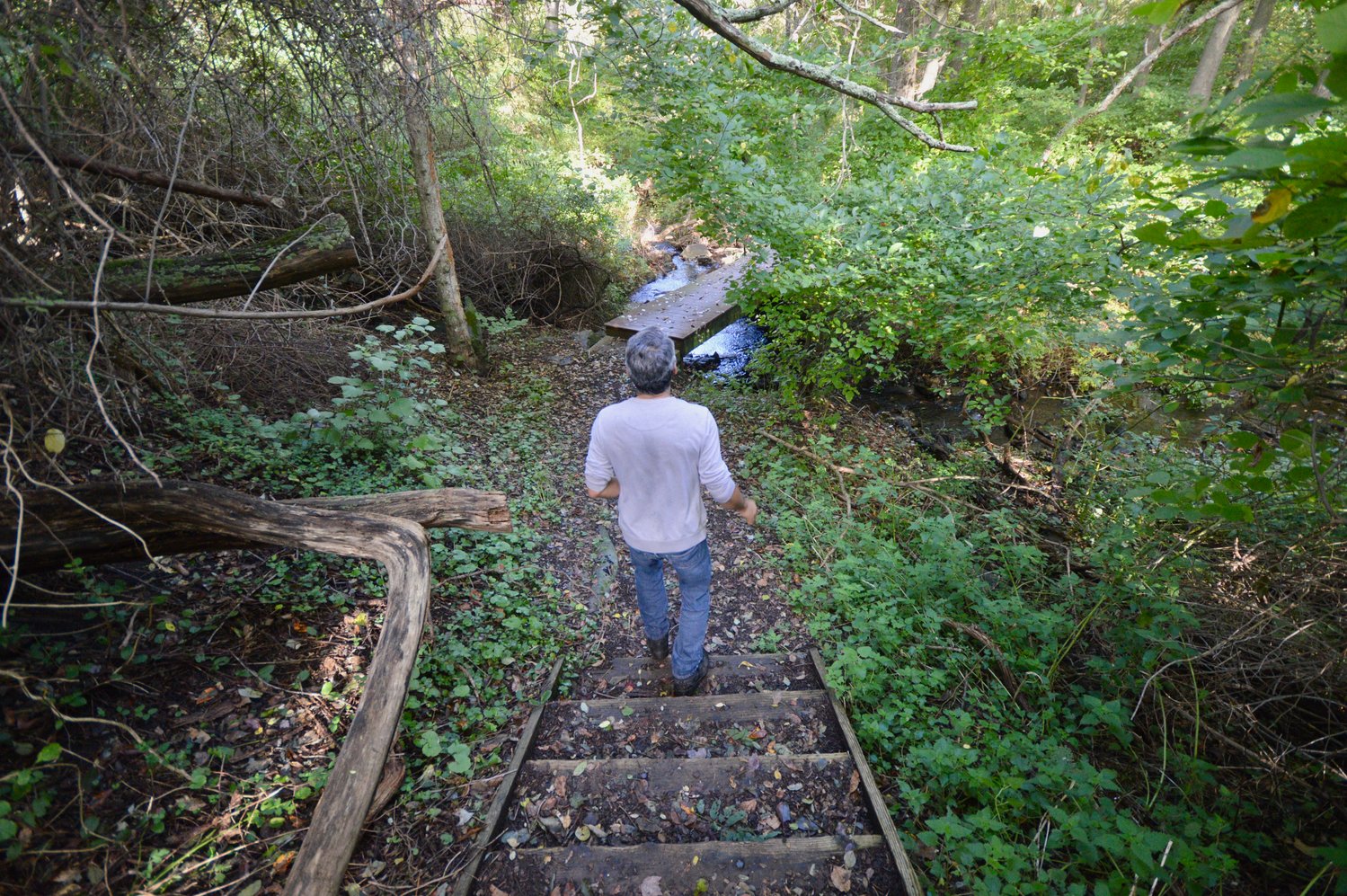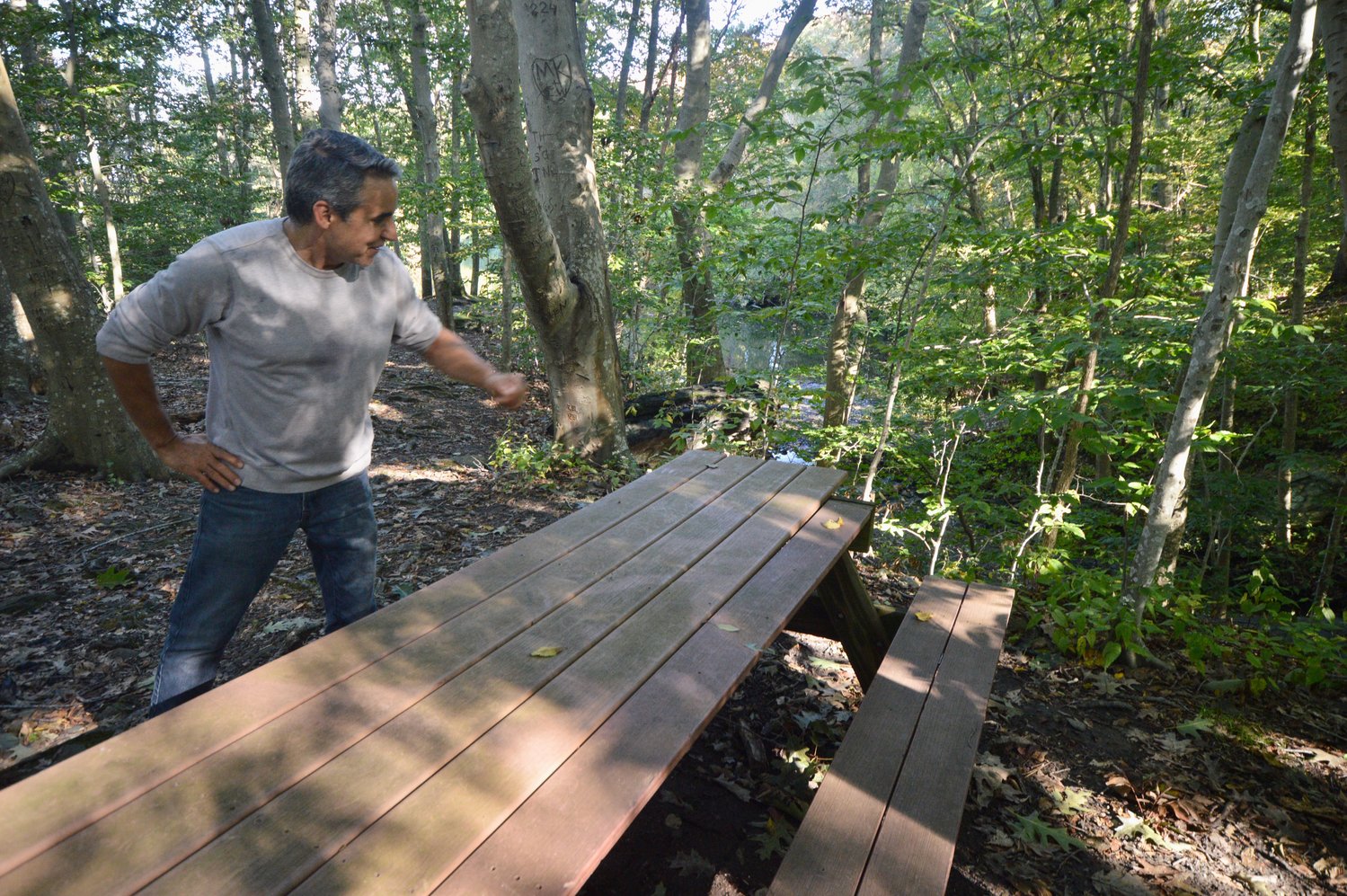- THURSDAY, JULY 18, 2024
In Portsmouth: ‘So much more we have to do’
Melville Park is seeking more help, input, grant money — and visitors
PORTSMOUTH — Stephen Luce momentarily stops in his tracks while hiking near a brook inside a wooded area of Melville Park.
This item is available in full to subscribers.
Please log in to continue |
Register to post eventsIf you'd like to post an event to our calendar, you can create a free account by clicking here. Note that free accounts do not have access to our subscriber-only content. |
Day pass subscribers
Are you a day pass subscriber who needs to log in? Click here to continue.
In Portsmouth: ‘So much more we have to do’
Melville Park is seeking more help, input, grant money — and visitors

PORTSMOUTH — Stephen Luce momentarily stops in his tracks while hiking near a brook inside a wooded area of Melville Park.
“Hear that?” he asks quietly.
The only sounds were the slight rustling of water and birds chirping above.
“The quietness” is one of the Melville Park Committee chairman’s favorite things about the town-owned park off West Main Road, which is still a secret to many local residents.
“Of course there are larger parks, but for Portsmouth — or even Aquidneck Island — this place is special,” said Luce. “There’s no other place like this on the island. There’s no publicly accessible park this large, with this much waterways, and this much wildlife on the island.”
Luce is now on a mission to make the park — part of the 153-acre Melville Recreation Area which also includes the Newport RV Park (formerly the Melville Ponds Campground) and the Portsmouth Dog Park — even better.
Plans include making some of the trails accessible to visitors with disabilities, cleaning up unsightly graffiti, putting in a walkway over a brook, saving trees from the dreaded Asian bittersweet, and more.
To do that, the committee needs an influx of new members or volunteers willing to come out and help with cutting, picking up trash or other labor. More grant funding to pay for some of the more expensive upgrades wouldn’t hurt, either.
“Melville Park is neglected so much. Many people don’t even know it’s here,” said Luce, who spent plenty of time at the park as a teenager, doing what teenagers do. He remembers piling into a car, driving down Mott Farm Road and goofing around in a small boat on the Lower Pond (both activities are prohibited). Now Luce is one of just a couple of committee members who regularly tend to the park, and he jokes how karma has caught up to him.
“People litter all the time. I’m paying for it now; I think I’ve picked up all the litter me and my friends dumped here 40 years ago, and then some,” he said.
History lesson
The land where the park now sits was once owned by farmer Adam Mott, back in 1640. “Mott Farm is one of the oldest farms in America that stayed in the family — from 1640 to 1890 or 1895,” Luce said.
Signs of the farm are still there, including remnants of a road that goes from West Main Road all the way down to the Lower Pond. The property went through different hands until World War II, when the Navy acquired it so the Patrol Torpedo Boat training base at Melville would have a secure water source.
“They created most of the ponds we have here — all manmade. There are officially nine, but in reality only seven are left,” said Luce.
The two biggest ponds are the Upper behind Melville School, now known as Thurston Gray Pond, and the Lower Pond. The smaller ones — minor dams were created to stop silt from getting into Lower Pond — are scattered throughout the woods, although some retain water more than others.
Pond 7, for example, was a full functioning pond until just a couple years ago. “The opening at the dam has opened, whether it broke on its own or someone came and did that. So now the water flows freely through, so basically the brook has been restored,” Luce said.
Pond 5 has been gone for many years now. “I like the fact that it’s reverting back to nature,” he said, noting the park now has a good mix of ponds that retain water for animals, while others are maintaining the brooks within.
The town acquired the property from the U.S. Navy in the late 1970s, several years after the federal government announced it was pulling the Atlantic fleet out of Newport. Under the agreement with the Navy, “the land must remain passive recreation, it cannot be developed and the town cannot make a profit off it,” Luce said.
Getter better all the time
The Melville Park Committee, in concert with the Department of Public Works, has been making improvements over the years to the park, which has also been a popular community service target for local Boy Scouts and Girl Scouts troops. Several of the pedestrian walkways and bridges, as well as a few benches, were Eagle Scout or Girl Scout projects. (Luce also notes that the pine forest within the Orange Trail loop was all planted by the Boy Scouts back in the 1950s.)
The committee has been redirecting a few trails to ensure they don’t traverse through wet areas, as well as creating a few connector trails to make getting around easier for hikers. Luce himself comes out to cut back on the bittersweet, and had a hand from local Boys Scouts back in September to deal with that invasive plant as well as Japanese knotweed.
“(Asian bittersweet) quite literally strangles the trees and ends up killing them or shortening their life.” Removing the bittersweet may seem overwhelming, “but it’s not completely insurmountable. You just do one tree at a time. You’re saving a tree and let it live another century.”
Last year the town was awarded a state grant of $40,000 (the town put up 20 percent of that amount) to improve the trails at the park and create an ADA-accessible trail.
“We’d like to make at least one loop completely outdoor wheelchair accessible … including a bridge over the waterfall to connect two sides of the valley,” Luce said. Outdoor wheelchairs can navigate any flat area, but a slightly raised, three-foot-wide pathway that won’t get muddy or washed out would need to be built, he said.
Dealing with graffiti, littering
Vandalism, littering and graffiti are all problems at the park, and the small group of volunteers that tends to it — committee member Tom Freeman is also a regular — finds it difficult to keep up.
A teepee believed to have been created by the Narragansett Indians a few decades ago “has been a magnet for people to sleep in, to trash and litter,” Luce said. Just recently, someone made cuts to the outside of the teepee, ruining some of its drawings.
Luce said teenage boys are most likely the culprits, but an older person is likely responsible for all the golf balls he finds in the woods. “I’ve picked up at least 200 golf balls,” said Luce, who believes they must be coming from either across West Main Road, or King’s Grant to the north.
The water tower, originally built around 1905 for the Bradford Coaling Station, is been a favorite backdrop for graffiti artists. “I’ve contacted the high school art department, asking them if any art students would be interested in painting a mural here,” said Luce.
He’s also battled graffiti on the Navy-built Block House, which once pumped the water and had to be secured to keep kids out. It’s now used as a storage shed.
The Melville Park Committee has an average budget of about $15,000. “Since I’ve been the chair, we don’t spend even half of that,” said Luce. One of the things the committee would like to do, however, is to spend an estimated $9,000 to oxidate the water to cut down on the algae growth in the Thurston Gray and Lower ponds.
“Both ponds were stocked (with fish) in the spring this year, but neither park were stocked in the fall, because of the blue-green algae,” he said.
Help wanted
When asked what the committee needs most from the public, Luce responded, “Mostly we need labor and good ideas. We need physical help in maintaining what’s already here, and we need help creating more amenities.”
Anyone interested in joining the Melville Park Committee should fill out an application at www.portsmouthri.gov. The committee meets at 7 p.m. the first Wednesday of the month in the Planning Board conference room at Town Hall.
“There’s just so much more we have to do,” Luce said.
Other items that may interest you

